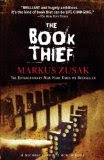
When I picked this book up from the library I was pretty sure I wouldn't like it:
...a handsome American naval officer sweeps her off her feet and she goes to live in the beautiful Hawaiian Islands with her new husband...she begins to discover that paradise has a darker side...
But it was on the Dymocks top 100 list, and I figured I might as well get it read since I'm willing to give most authors a chance.
The first part of the book was exactly what I had expected: a cardboard cutout of a 'perfect' courtship, marriage, and honeymoon. The only thing that kept me interested was I could see some definite cracks appearing.
As the story unfolded I was surprised by the depth of detail about Hawaii and surfing. This aspect of the story managed to keep my interest while I was waiting for darling Bradley to turn into a psychopathic killer. Unfortunately the 'darker side' alluded to in the description is not really that dark: the book is completely devoid of twists and plays out the very obvious plot.
Certainly not a great book, but I had been ready to dismiss it as trash. Ms. Morrissey obviously really liked Hawaii, and I enjoyed matching her descriptions with my memories of the islands.
2 stars.


